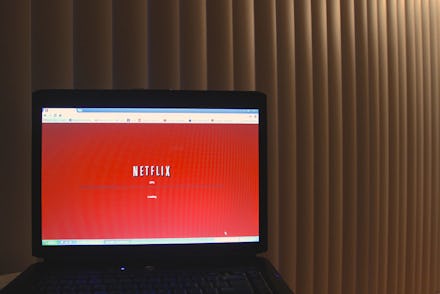Will Netflix Kill Cable? Here's Why Cable Providers Aren't Dying Anytime Soon

Netflix is a digital phenomenon that has become a pillar of pop culture — thanks to viral original programming like Making A Murderer and Orange Is the New Black, and spawning its own pastime: "Netflix and Chill." In October 2015, about one-fifth of young adults lived sans a cable subscription, instead opting to stream media on their own time (also known as binge-watching) and for a smaller price tag, the New York Times reported.
As of January, Netflix boasted over 75 million subscribers and added over 130 countries to its roster, according to the Verge. So it seems like cable is awaiting an inevitable death. Or at least that's what Netflix's CEO Reed Hastings said in 2014, according to the Hollywood Reporter. "It's kind of like the horse, you know, the horse was good until we had the car," he said. "The age of broadcast TV will probably last until 2030."
Read more: How Does Netflix Pay Studios? What the Streaming Giant Does to Obtain Content
It's undeniable that the landscape of media consumption has pivoted and will continue to do so, New York University professor Mitchell Stephens told Fortune. Netflix's popularity has grown on the millennial affinity for viewing content on devices other than television screens — but cable companies are adapting too, Forbes reported. In the end, millennials only care about "convenience and cost," according to the Atlantic.
So far, cable providers have kept a tight content-owning grip over many television shows, which means that viewers need cable subscriptions to log in and watch the latest episodes, the Economist reported. For now, that still applies to live television events, such as awards shows and sports, according to Fortune. Netflix still pays studios in licensing agreements to stream their content.
Netflix itself has teamed up with certain cable providers, which also tend to be internet providers to allow subscribers to stream Netflix over their cable boxes, according to Fortune in 2014. To Netflix, it was another way to reach more people with its services. To cable and internet companies, it was another way to cash in on the Netflix trend.
However, Netflix is hardly the only company planting its flag in on-demand streaming content — there's also Amazon, Hulu and even Apple, which has even more money and content than Netflix and its a la carte style, according to Wyatt Investment Research. Cable companies are too large for Netflix and friends to demolish anytime soon and millennials can't escape the grasp of cable for too long. According to the New York Times, "About 80% of millennials with their own homes who have started families subscribe to cable."